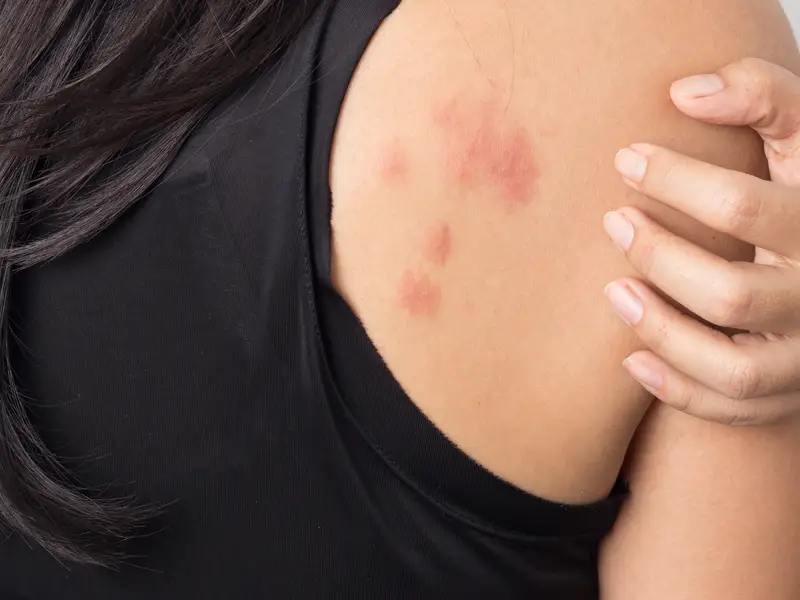
Vitamin-Deficincy
Your skin doesn’t just protect you from external elements—it also acts as a window into your internal health. When your body lacks essential nutrients, the skin often shows the first visible signs. From dryness to discoloration, the condition of your skin can help identify potential vitamin deficiencies that might otherwise go unnoticed. In this article, we’ll discuss the top 10 signs of vitamin deficiency on the skin and what they could mean for your overall health.
1. Dry, Flaky Skin
One of the most common signs of a vitamin deficiency is persistently dry or flaky skin. While environmental factors like cold weather can cause dryness, chronic dryness often points to a lack of vitamin A or vitamin E. Vitamin A is essential for skin cell regeneration, while vitamin E protects the skin from oxidative stress and helps maintain moisture levels. Deficiencies in these vitamins may also make your skin more prone to irritation and environmental damage. Replenishing these nutrients can restore your skin’s softness and natural glow over time.
2. Cracked Lips and Mouth Corners
If the corners of your mouth are frequently cracked or your lips are excessively dry, it could signal a deficiency in B vitamins, particularly B2 (riboflavin), B3 (niacin), and B12. This condition, called angular cheilitis, can be uncomfortable and persistent without proper treatment. These vitamins are crucial for skin repair and maintaining healthy mucous membranes. Without them, your skin loses its ability to stay hydrated and heal quickly, especially around delicate areas like the mouth.
3. Pale or Yellowish Complexion
A sudden change in skin tone, especially if your skin appears paler or slightly yellow, might be due to low levels of vitamin B12 or iron. These nutrients play a vital role in red blood cell production, and their deficiency can lead to anemia, which in turn affects oxygen delivery to skin cells. Reduced oxygen can make your skin appear lifeless, tired, or even patchy in tone. Early treatment can help restore natural pigmentation and energy levels.
4. Slow Wound Healing
If minor cuts, bruises, or wounds are taking longer than usual to heal, your body might be low in vitamin C. This essential nutrient supports collagen production—a protein that helps maintain the skin’s structure and elasticity. Without it, the skin’s repair mechanisms weaken, leading to prolonged recovery times. In severe cases, wounds may reopen or become more susceptible to infection due to poor skin regeneration.
5. Small Red or Purple Bumps
Tiny, rough bumps on the upper arms, thighs, or cheeks—often referred to as “chicken skin”—may be a symptom of keratosis pilaris, a condition linked to vitamin A and E deficiencies. These vitamins are necessary for healthy skin cell turnover. When dead skin cells aren’t properly shed, they clog hair follicles and cause bumpy textures. Consistent exfoliation and vitamin-rich skincare can help minimize this condition.
6. Unusual Dark Patches or Pigmentation
Hyperpigmentation, or the development of dark patches on the skin, can sometimes be a sign of a vitamin B12 or vitamin D deficiency. These patches often appear on the cheeks, around the mouth, or on the hands. Both vitamins are involved in skin renewal and immune regulation. Their deficiency can lead to poor skin tone, uneven coloration, and an increased risk of inflammatory skin conditions.
7. Persistent Red Rashes or Dermatitis
Skin rashes that don’t respond well to moisturizers or allergy creams may stem from a vitamin B6 (pyridoxine) deficiency. This vitamin supports various skin functions, including moisture retention and immune response. A shortage of B6 can weaken the skin’s barrier, making it more reactive and inflamed. This can lead to discomfort, flaking, and even secondary infections in some cases.
8. Frequent Breakouts or Acne
Acne is commonly caused by hormonal changes or clogged pores, but nutritional deficiencies, especially in zinc and vitamin A, can make breakouts worse. Zinc helps control oil production and inflammation, while vitamin A assists in skin cell turnover and healing. Low levels of these nutrients can result in more persistent, inflamed, and scarring forms of acne. Addressing the root deficiency often reduces breakouts naturally over time.
9. Easy Bruising
Bruising easily, especially without any noticeable trauma, can be a sign of vitamin C or vitamin K deficiency. These nutrients are critical for blood vessel integrity and blood clotting. A lack of vitamin K impairs proper clot formation, while vitamin C supports vessel strength. Over time, this combination can result in more visible and frequent bruises from even light pressure.
10. Yellow-Tinged Skin
A yellowish hue to the skin, particularly when not accompanied by other symptoms of liver disease, can sometimes signal a severe vitamin B12 deficiency. This occurs when red blood cells break down at a faster rate due to a lack of B12, releasing bilirubin, a pigment that causes yellowing. Such a deficiency is often accompanied by fatigue, numbness, or cognitive issues. Prompt diagnosis and treatment are essential to reverse symptoms and prevent long-term damage.
Best Dermatologist in Lahore – Book Online Appointment or visit
Conclusion
Your skin is often one of the first places where vitamin deficiencies reveal themselves. While many skin issues have multiple potential causes, recognizing these symptoms as possible nutritional warning signs can help guide early intervention. It’s important to maintain a balanced diet rich in fruits, vegetables, whole grains, and lean proteins to meet your body’s vitamin needs.
CBC Blood Test with Same-Day Results
However, diet alone may not always be enough, especially for individuals with absorption issues, dietary restrictions, or chronic conditions. If you notice any of the above signs persisting despite a healthy lifestyle, consult a healthcare provider for a thorough evaluation and consider getting blood tests to identify specific deficiencies. Taking care of your skin starts from within, and giving your body the nutrients it needs is one of the most effective ways to support long-term skin health and overall well-being.


